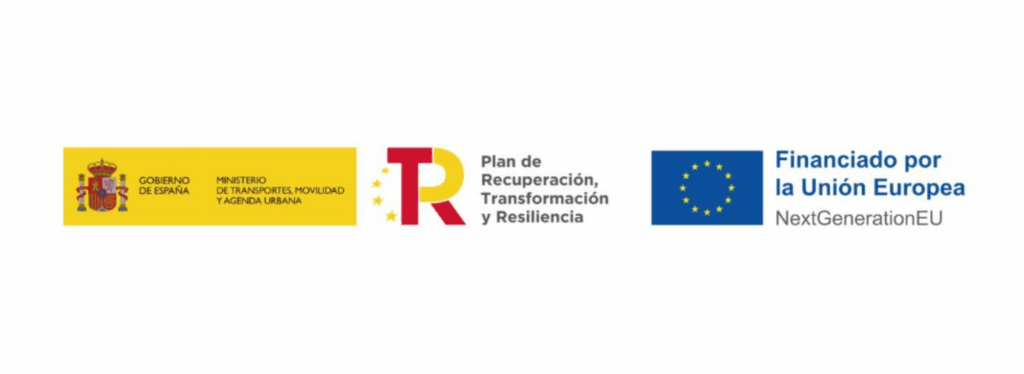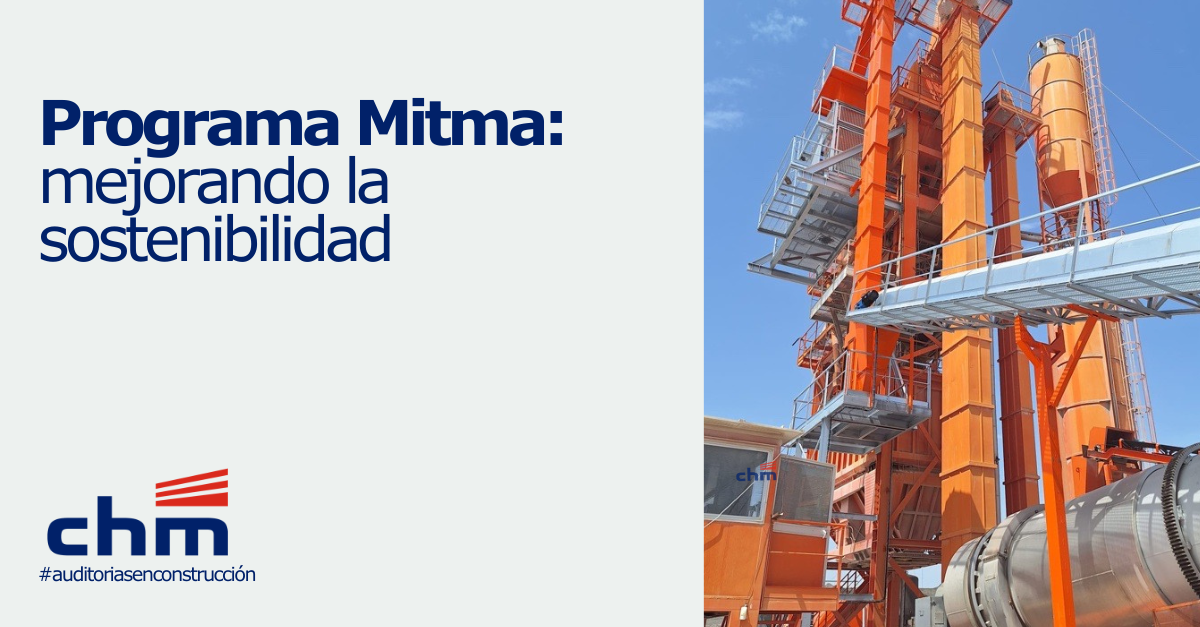Four of our plants have been upgraded under the MITMA Program to improve sustainability with technical solutions that enhance sustainability and efficiency. Discover how these improvements are transforming our production processes from a responsible and operational perspective.
The modernization of mobility-related infrastructure is not limited to roads, railroads or ports. It also includes those industrial facilities that allow the production of materials essential for the execution of works. In this context, the Ministry of Transport and Sustainable Mobility (MITMA), through the Recovery, Transformation and Resilience Plan (PRTR), promotes the Program to support sustainable and digital transportationin which several of the following are framed projects supported by the MITMA program.
Among them, the actions carried out by the following are noteworthy CHM Works and InfrastructuresThe company has adapted four of its asphalt agglomerate plants -two fixed and two mobile- using technical solutions aimed at sustainability, energy efficiency and the circular economy.
Four actions integrated into the MITMA Program to Improve Sustainability
The interventions carried out by CHM have benefited from the subsidized framework of the MITMA Plan to carry out a set of technical improvements, with the aim of reducing the environmental impact of the production of bituminous mixtures, incorporating recycled materials and optimizing the industrial processes in the manufacturing plants.
Ermont mobile plant: thermal efficiency and RAP use
A triple intervention has been completed at the Ermont mobile plant:
- Removable thermal insulation (heat-insulated) in bitumen supply lines, improving energy efficiency and worker safety.
- Incorporation of RAP (Reclaimed Asphalt Pavement), allowing the reuse of milled pavements and reducing the consumption of raw materials.
- Installation of a bitumen skimmerThe use of a mixer, which lowers the mixing temperature, reduces emissions and improves the quality of the final product, is a key factor in the quality of the final product.
These improvements make the plant a versatile and environmentally friendly unit.
Albatera plant: recycled materials and powdered rubber
The rubber powder dosing unit is a mobile device that can be attached to any plant.
Two improvements of high technical value have been implemented at the Albatera fixed plant:
- Power supply system for RAPwhich allows the incorporation of recycled material from the milling of existing pavements.
- Rubber powder dispenserThis facilitates the reuse of end-of-life tires (ELTs) and improves the mechanical behavior of the mixtures.
The combination of RAP and recycled rubber in blends reinforces CHM's strategy towards a real circular economy applied on an industrial scale. in all plants.
Requena plant: adaptation for agglomerate with RA
The Requena plant has been adapted to incorporate recycled material (RA) in the production of agglomerate, within the same program of projects subsidized by the MITMA Plan. This action:
- Modernizes the production line.
- Increases process efficiency.
- Contributes to the reduction of the carbon footprint.
This is an initiative partially funded by MITMA under the PRTR, with the aim of promoting more sustainable transport and supporting infrastructure better adapted to climate and energy challenges.
Intrame mobile plant: finalization of the plan with key technologies
The Intrame plant represents the culmination of all of CHM's actions within the MITMA program. It has been incorporated:
- A bitumen foamerto reduce mixing temperatures and emissions.
- A system of detachable heatingadapted to the mobility conditions of this plant.
These interventions make it possible to work more efficiently in variable environments, adapting the plant to different geographical contexts without losing performance.
Applied technologies and technical approach
The four plants have been intervened with technologies that provide tangible benefits:
- CalorifugadoThermal insulation that avoids energy losses.
- Bitumen foamingReduction of working temperatures and emissions.
- RAP / RAReuse of milling materials.
- Rubber dosingIncorporation of recoverable waste.
These solutions not only meet the technical requirements of quality and durability, but also enable progress towards manufacturing processes with a smaller environmental footprint.
Global impact of MITMA program projects at CHM
CHM's activities under the umbrella of the MITMA program projects reflect a corporate strategy oriented to:
- Continuous improvement of production facilities.
- The integration of sustainability as a technical decision criterion.
- Adaptation to European financing frameworks for industrial modernization.
On a practical level, these investments make it possible to operate with lower consumption, less environmental impact and greater flexibility, without altering the quality and productivity of the asphalt mix manufacturing process.
CHM's participation in the MITMA Program subsidized projects is a key driver for transforming their processes from a technical, environmental and operational perspective. The actions on the asphalt agglomerate plants are an example of how public aid can be translated into concrete, measurable improvements aligned with sustainable mobility policies.
The future of civil engineering depends on an adapted, technically sound and environmentally responsible industry. Initiatives that integrate efficient technologies, recycled materials and results-oriented public financing are the way to build infrastructures that meet today's challenges.
At CHM, this commitment is reflected in every plant, in every technical improvement and in every decision based on the balance between production, impact and social value.
See other sustainability and efficiency news


